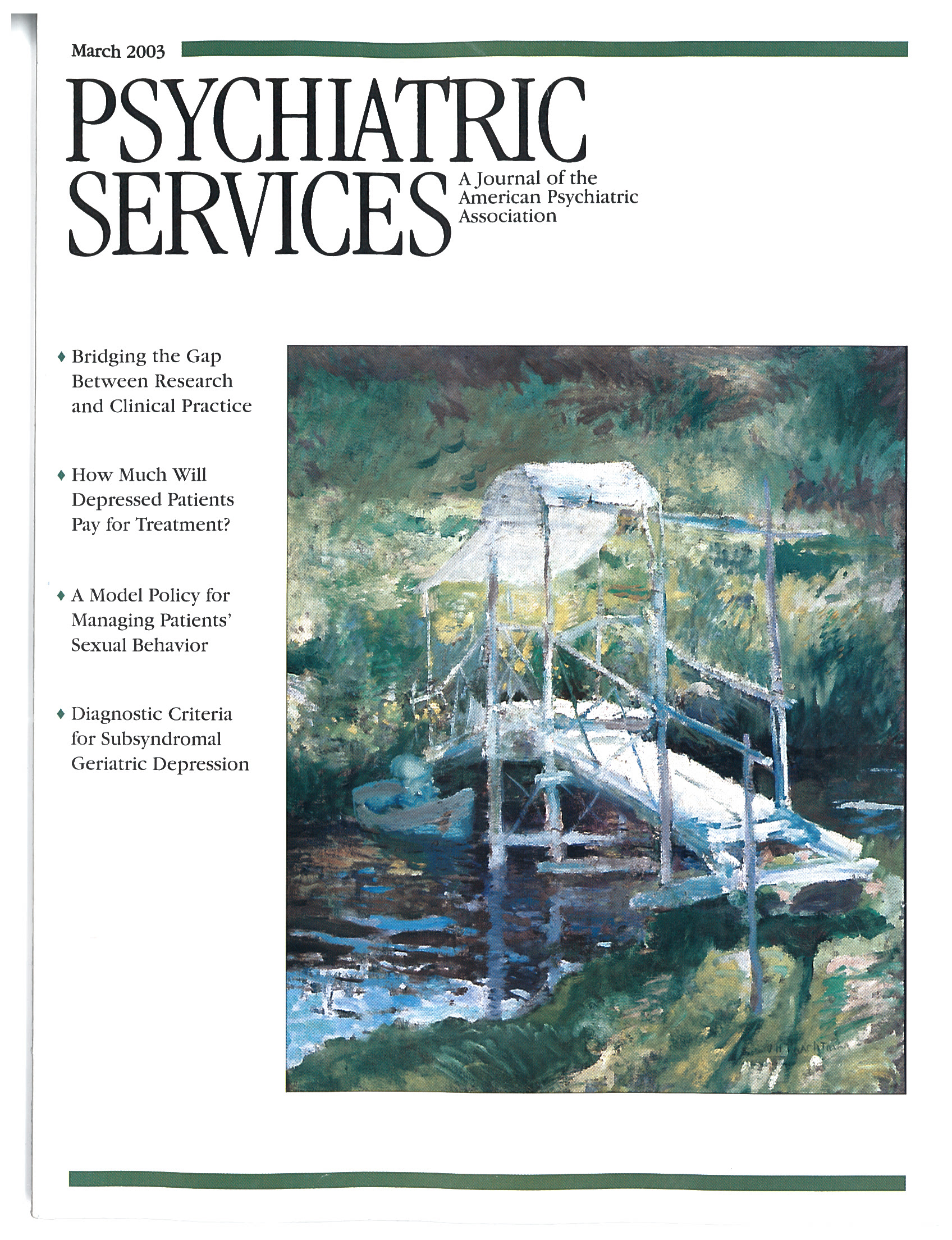Process, Not Practice
To the Editor: William A. Anthony, Ph.D., makes an excellent point in the January 2003 Taking Issue (1), "Studying Evidence-Based Process, Not Practices." He argues that instead of studying practices and programs, one should examine "process," by which he means such things as "collaborative goal setting, skills training,…providing environmental accommodations, and coaching." Dr. Anthony quite correctly points out that processes cut across programs. He also states that program differences, when found, may have little to do with the nominal differences under study.
Can Dr. Anthony's argument fall anywhere but on the deaf ears of those who fund outcome studies or on the nodding heads of those who provide care and treatment to persons with chronic mental illnesses? The latter group knows that what he says is true but has little leverage to direct funds for outcome studies. The former cares little for process because processes cannot be directly funded.
Furthermore, Dr. Anthony makes the assumption that process studies would have less contaminated outcomes than studies of practices—that is, the process under study is actually the key variable that accounts for the differences found in a study with random assignment, which of course can never be double-blind. His assumption might be correct, but we don't know. There is no research.
So I ask you, Dr. Anthony, who is going to fund the research you and I would like to see? For if the research were funded, we could get away from many program issues, including foolish arguments about the loci of care and treatment. We would likely find that the process and not the place makes most of the difference.
Dr. Geller is professor of psychiatry and director of public-sector psychiatry at the University of Massachusetts Medical School in Worcester.



